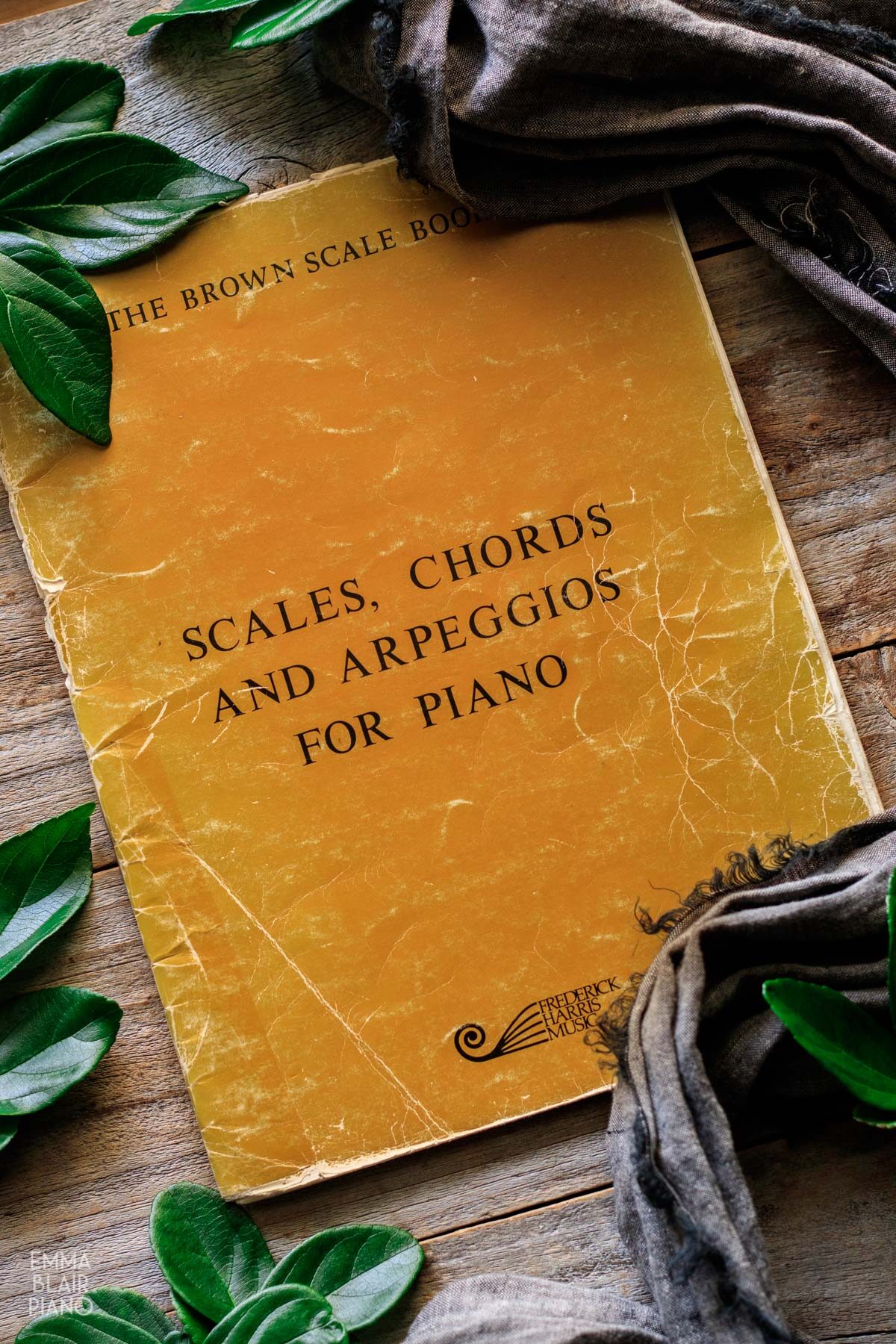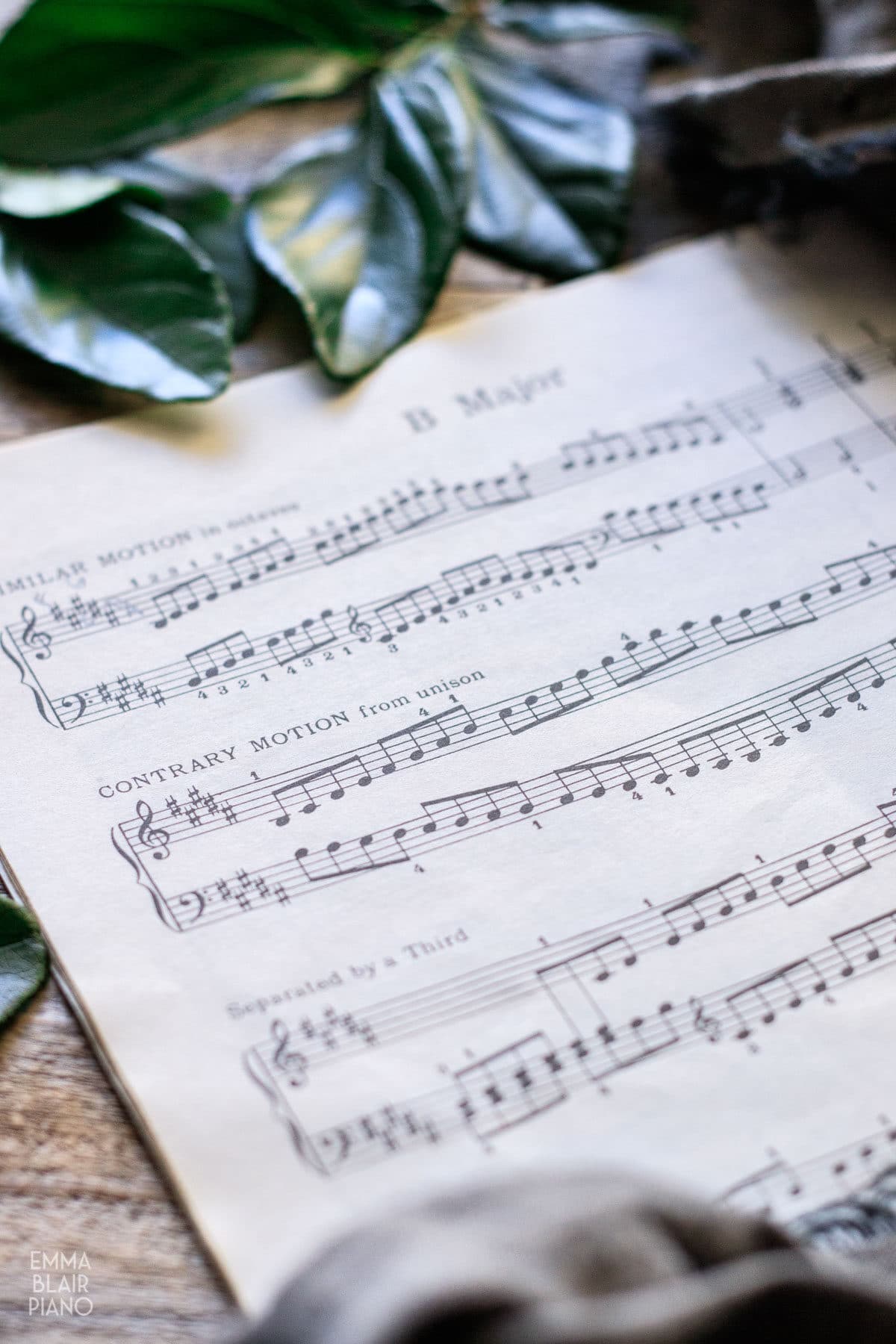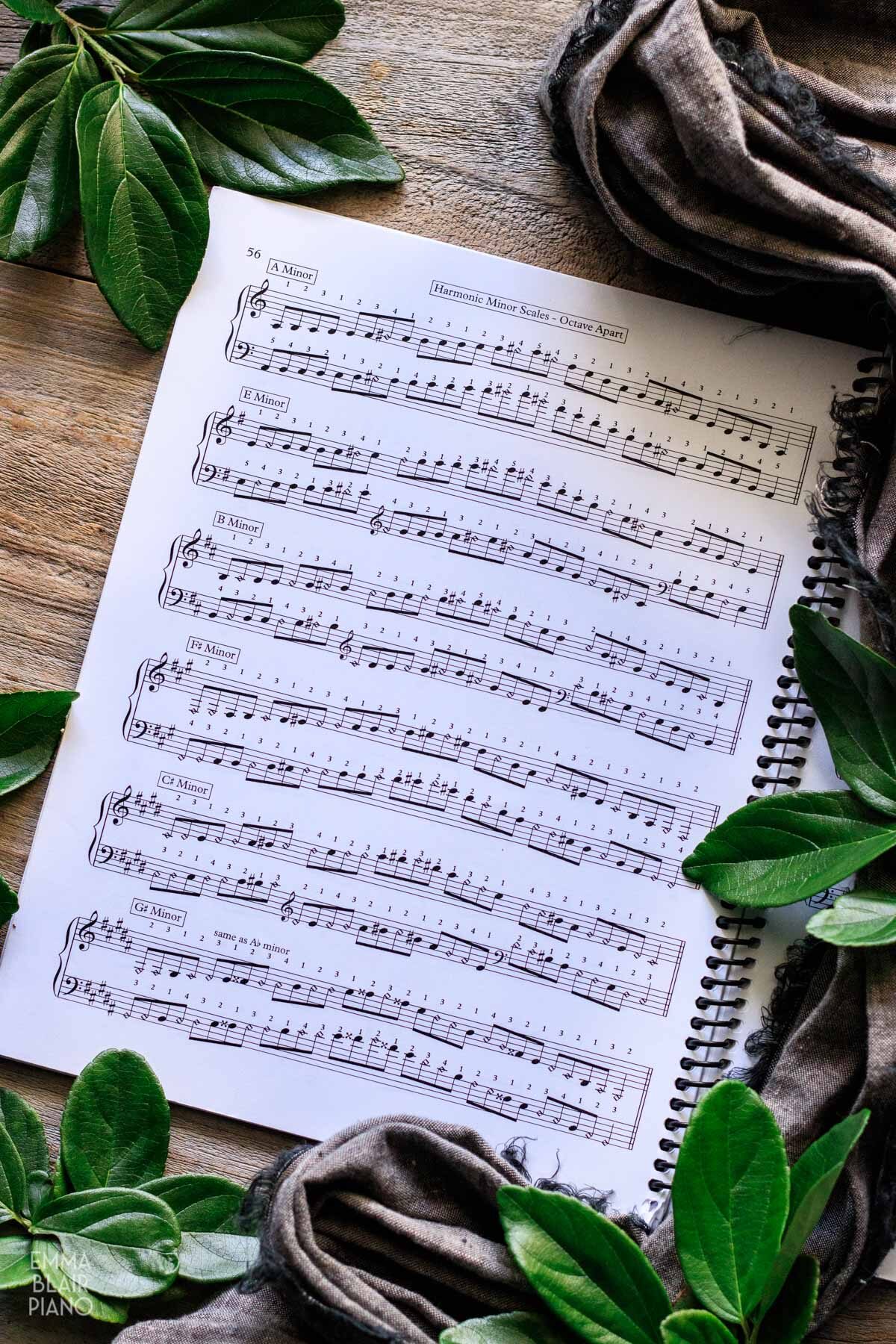No one likes practicing scales, and many piano students like to skip them altogether. Is there actually any merit to practicing them? Do they make a difference in one's piano playing? Yes, they do!

About Scales
Scales are the alphabet of music, familiarizing you with all 12 major and 12 minor keys. These simple exercises will improve your piano technique, strengthen your fingers, help with sight reading and improvisation, and make it easier to learn new pieces. A few minutes of practicing these each day will make an enormous difference in your piano technique.
Let's jump in and learn why they are important!
Why They're Important
They are a gentle warm up for your hands and wrists. Especially for pianists, getting the fingers and wrists warmed up and flexible reduces the chance of injury and makes playing much more comfortable. Incorporating a few minutes of Hanon exercises in addition to scales will also make the fingers more limber.
They strengthen fingers and improve speed and agility, especially in the thumbs. This ties in with the previous point about warming up your fingers. The stronger and more relaxed your fingers and wrists are, the faster and better you will be able to play. These exercises also provide an excellent opportunity to work on playing quickly and accurately.
They cause you to develop a sense of rhythm and timing. The precise timing of a scale forces you to play smoothly and in time with the music, especially when playing with a metronome.
They will improve your fingering. Learning how to play a smooth passage in each key will greatly assist you when learning a piece in that key. You'll already have an understanding of the sharps, flats, or accidentals in the key.
Scales will help you synchronize the right and left hands. The precision of this exercise require you to play both hands simultaneously, which can be tricky for new or younger students.
Scales familiarize you with keyboard geography. With 88 keys on a piano, it can be difficult to feel comfortable playing on any spot along the keyboard. Playing scales, especially in three and four octaves, will get you accustomed to playing at the extreme ends of the keyboard. Key signatures with sharps and flats will help you articulate sharps and flats in your music.
These exercises force you to learn all the major and minor key signatures. This one reason will revolutionize your piano playing! Once you're familiar with all 12 major and 12 minor keys, you'll instantly recognize what key a piece is in, and you'll already have the mode or pattern of that scale in mind.

Scales help you learn a new piece faster. With diligent practice, you'll be able to recognize scalar passages and patterns in more difficult music. This truly is a great help when you become a more advanced pianist.
These exercises give you a chance to work on expression. It can be difficult to incorporate techniques such as staccato, legato, crescendos, and dimuendos into the pieces you are learning. Practicing these accents and volume changes in a scale format is a convenient opportunity to incorporate these into your practicing.
They will help you ace exams. If your goal is to pass a graded music exam, such as those offered by the Royal Conservatory of Music, then a thorough knowledge of these exercises is vital. The examiner will ask you to perform a selection of scales, chords, and arpeggios from memory. The amount of keys and difficulty of material will vary depending upon the grade level.
Scales teach you basic music theory. Understanding scales will help you learn the degrees of the scale, the circle of fifths, intervals, chords, and much more. You'll have an understanding of how different keys are related to each other. Knowing your key signatures inside and out will make studying music theory much easier.
They can help with sight reading. Familiarizing yourself with the key signatures and recognizing the patterns in a piece of music will help you sight read more easily and accurately.
Scales will help you improvise and compose. It is difficult indeed to improvise or compose without a thorough knowledge of key signatures and chords. Practicing scales will give you a solid foundation, which will help you learn additional music theory and improve your improvisation and composing.

Conclusion
Are you convinced of the value of incorporating scales in your practice routine? I encourage you to persevere in practicing them diligently, even when you don't feel like it. Consistent, quality practicing will yield wonderful results.
You might be asking, how long should I practice them each day? Aim to spend 10 minutes per 1 hour of practice on scales, chords, and arpeggios to see results. I actually like to practice them for about 20 minutes per 1 ¼ hours of practice, as 10 minutes doesn't feel long enough for me.
Psst: this is my favorite scale book (not an affiliate link). This book helped me learn all the keys, strengthened my fingers, and improved my sight reading.
Do you have a good reason why scales are important? How do you incorporate them into your piano practicing? Leave a comment below; I'd love to hear from you!
Follow Emma on Pinterest, YouTube, Instagram, and Facebook for more tips on becoming an amazing pianist!
Check out these other articles to learn how to improve your piano playing.
You must use the category slug, not a URL, in the category field.Video
Prefer to watch this information instead? Check out this video explanation of why scales are important, and 7 great reasons to make them a part of your practice sessions.






L
Well written, Emma! I agree that scales are so important for learning your instrument. Great job!
Emma
Thank you so much, L! Scales really are so important!
Brooke
The idea of practicing scales isn't thrilling, but once I got started in each piano practice session I was totally fine with it. My motivation to keep practicing scales was I needed to increase my mark for my piano examinations each spring, so this was one area of technique that I could shine.
Emma
That's one thing that's easier to get a good mark in, rather than in ear training or sight reading. Scales aren't always fun to practice, but they really do make a difference!
Elvirasoares
Wonderfull I enjoy a lot all the explanation
Emma
Thank you! I'm glad you found it helpful, Elvira!